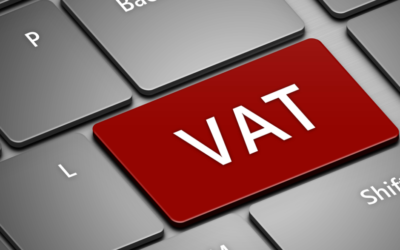The new tax year 2025/2026 brings significant changes that will affect both employers and directors of Limited companies. The new regulations, effective from April 6, 2025, will have a particular impact on companies where the director is the sole employee. In this article, we’ll break down the key changes and explain how they might affect your business.
Key Changes in Employer Contributions from April 2025
- Lower Employer NI Threshold
The threshold for paying National Insurance Contributions (NICs) will decrease from £9,100 to £5,000. - Increase in Employer NIC Rate
The employer NIC rate will rise from 13.8% to 15% on earnings above £5,000 per year. - Increase in Employment Allowance
The Employment Allowance limit will increase from £5,000 to £10,500 per year. - Higher Minimum Wage
The new minimum hourly wage will rise from £11.44 to £12.21.
How These Changes Affect Employers
Lower National Insurance Threshold
Previously, the £9,100 threshold allowed business owners to avoid paying NICs up to this amount. Many directors would pay themselves a salary of £758 per month, avoiding both NICs and income tax.
From April 2025, however, employers will need to pay NICs on earnings above £5,000, introducing an additional tax burden for companies.
Increased Employment Costs
The rise in employer NIC from 13.8% to 15% means higher staffing costs. For small businesses, this may require adjusting employment strategies or finding ways to cut expenses elsewhere.
Implications for Directors of Limited Companies
Directors who are the sole employees of their companies do not qualify for Employment Allowance. This means they will be responsible for the full amount of employer NICs on earnings above £5,000.
Salary Strategy for Sole Directors
| Annual Salary | Employer NIC 2024/2025 | Employer NIC 2025/2026 | Additional Cost |
| £9100 | £0 | £615 | £615 |
| £12,570 | £479 | £1136 | £657 |
Optimal Salary Strategies
- £5,000 Salary
- Pros: No NICs or taxes.
- Cons: This year won’t count towards your State Pension.
- £6,504+ Salary
- Pros: Qualifies for State Pension credits.
- Cons: Requires paying NICs.
- £12,570 Salary
- Pros: Fully utilizes the tax-free personal allowance.
- Cons: Higher NIC contributions.
Monthly Salary Breakdown
| Monthly Salary | NINO | Employer NIC | Income Tax | Qualifies for Pension? |
| £417 | £0 | £0 | £0 | NO |
| £542 | £0 | £18.75 | £0 | YES |
| £1048 | £0 | £94.66 | £0 | YES |
| £1500 | £36.20 | £162.51 | £90.50 | YES |
How to Avoid Additional Costs?
One solution might be hiring additional employees. If they earn more than £542 per month, the company can benefit from the increased £10,500 Employment Allowance and reduce NICs.
For Ltd companies with only one director, the best option might be a salary of £12,570 if there are other employees in the company. Otherwise, it’s crucial to tailor your salary strategy to your company’s specific needs.
Conclusion
The new regulations will significantly impact the cost of running a business in the UK. To avoid unnecessary expenses, it’s essential to plan your salary strategy ahead of time and consider alternative solutions.
📞 Need help with tax optimization? Contact us today!
In our next article, we’ll discuss the changes affecting employers with multiple employees.
Need help?
Need an accountant? Call me now!
Similar articles:
Changes in Employers Allowance from April 6, 2025 – what do you need to know? part 2
In the previous article, we discussed changes for companies where the director is the sole employee. Today, we will look at other situations, including companies that employ more people. Two directors drawing salary If a company has two directors who receive a salary...
4th Grant
Fourth grant for self-employed will start at the end of April 2021, the exact date will be announced soon. Good news for people who did not quallfied for SEISS so far!!! If you started your seld-employment after March 2019 or you were not entitled to the...
Flat Rate Scheme
VAT – Flat Rate Scheme What is it? VAT is calculated as a difference between VAT from sales (output VAT) and VAT from purchases (input VAT). Sometimes a person has a refund of VAT, but many times owes Vat to HMRC. Flat Rate Scheme is a set % of VAT that has to be...




